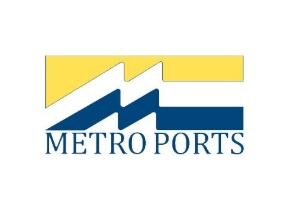
By adopting R99 renewable diesel, produced from sustainable sources such as used cooking oil and agricultural waste, Metro Ports has significantly lowered its environmental impact while maintaining operational growth. The emissions study reported an 85% reduction in Scope 1 emissions, from 774 metric tons in 2023 to 118 metric tons in 2024. Fossil fuel-related CO2 emissions dropped by 86%, while biofuel CO2 emissions rose due to the shift to renewable sources, which release recently absorbed carbon, making them a cleaner alternative. “Even with a 3% increase in fuel consumption, our emissions decreased—demonstrating that environmental responsibility and business growth can go hand in hand,” said Lee Swietlikowski, President of Metro Ports.
The Port of Long Beach has long prioritized sustainable practices, and Metro Ports’ efforts align with these goals. “For years, the Port of Long Beach has been a leader in advancing sustainable goods movement. Metro Ports’ commitment to renewable diesel is another important step toward reducing our environmental impact,” said Mario Cordero, executive director of the Port of Long Beach. “By voluntarily transitioning to R99 and significantly cutting emissions, Metro Ports demonstrates how forward-thinking leadership and environmental responsibility can go hand in hand. We commend Metro Ports for their dedication to cleaner operations and ongoing efforts to support the Port’s broader sustainability goals.”
To ensure accurate reporting, Metro Ports improved its emissions tracking process. Enhancements included measuring emissions based on actual fuel usage, verifying data through supplier invoices, updating calculations to reflect R99’s impact, and conducting site-specific analyses across all Long Beach locations. These steps provide transparent and reliable results, reinforcing the company’s commitment to sustainability.
Metro Ports’ parent company, Nautilus International Holding Corporation, supports these efforts as part of a broader strategy. “Nautilus and our subsidiaries are committed to sustainable operations and will continue to explore innovative ways to reduce our environmental impact. Our success at the Port of Long Beach is just one step toward a cleaner future,” said Robert Owens, president and CEO of Nautilus International Holding Corp. The transition to renewable diesel showcases Metro Ports’ ability to balance operational efficiency with environmental stewardship, contributing to cleaner port operations and sustainable growth.